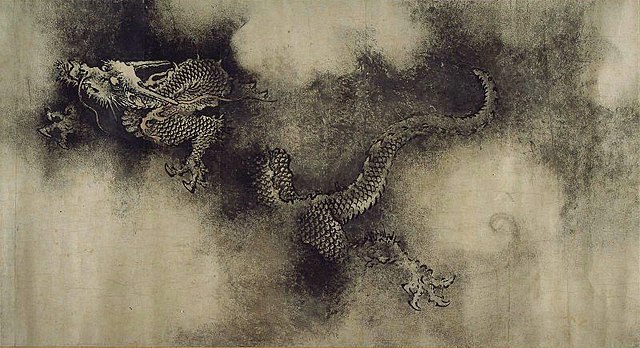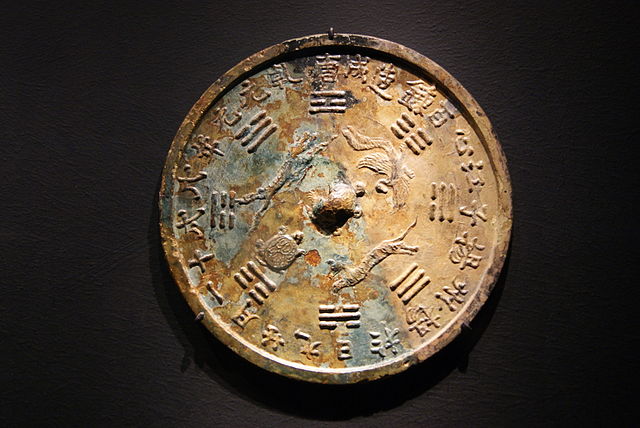Laozi, also romanized as Lao Tzu and various other ways, was a semi-legendary ancient Chinese philosopher, author of the Tao Te Ching, the foundational text of Taoism along with the Zhuangzi. Laozi is a Chinese honorific, typically translated as "the Old Master". Modern scholarship generally regards his biographical details as invented, and his opus a collaboration. Traditional accounts say he was born as Li Er in the state of Chu in the 6th century BC during China's Spring and Autumn period, served as the royal archivist for the Zhou court at Wangcheng, met and impressed Confucius on one occasion, and composed the Tao Te Ching in a single session before retiring into the western wilderness.
Portrait by Zhang Lu
Confucius meets Laozi, Shih Kang (史杠), Yuan dynasty
Depiction of Laozi in E. T. C. Werner's Myths and Legends of China
Carving of Laozi at Ping Sien Si Temple in Perak, Malaysia
Chinese mythology is mythology that has been passed down in oral form or recorded in literature throughout the area now known as Greater China. Chinese mythology encompasses a diverse array of myths derived from regional and cultural traditions. Populated with engaging narratives featuring extraordinary individuals and beings endowed with magical powers, these stories often unfold in fantastical mythological realms or historical epochs. Similar to numerous other mythologies, Chinese mythology has historically been regarded, at least partially, as a factual record of the past.
Nine Dragons, handscroll section, by Chen Rong, AD 1244, Song dynasty, Museum of Fine Arts, Boston
Bronze mirror with cosmological decoration from the Belitung shipwreck, including Bagua.
The creation of the River of Heaven (Milky Way) across the sky.
Ming dynasty Water and Land ritual painting of celestial deities








